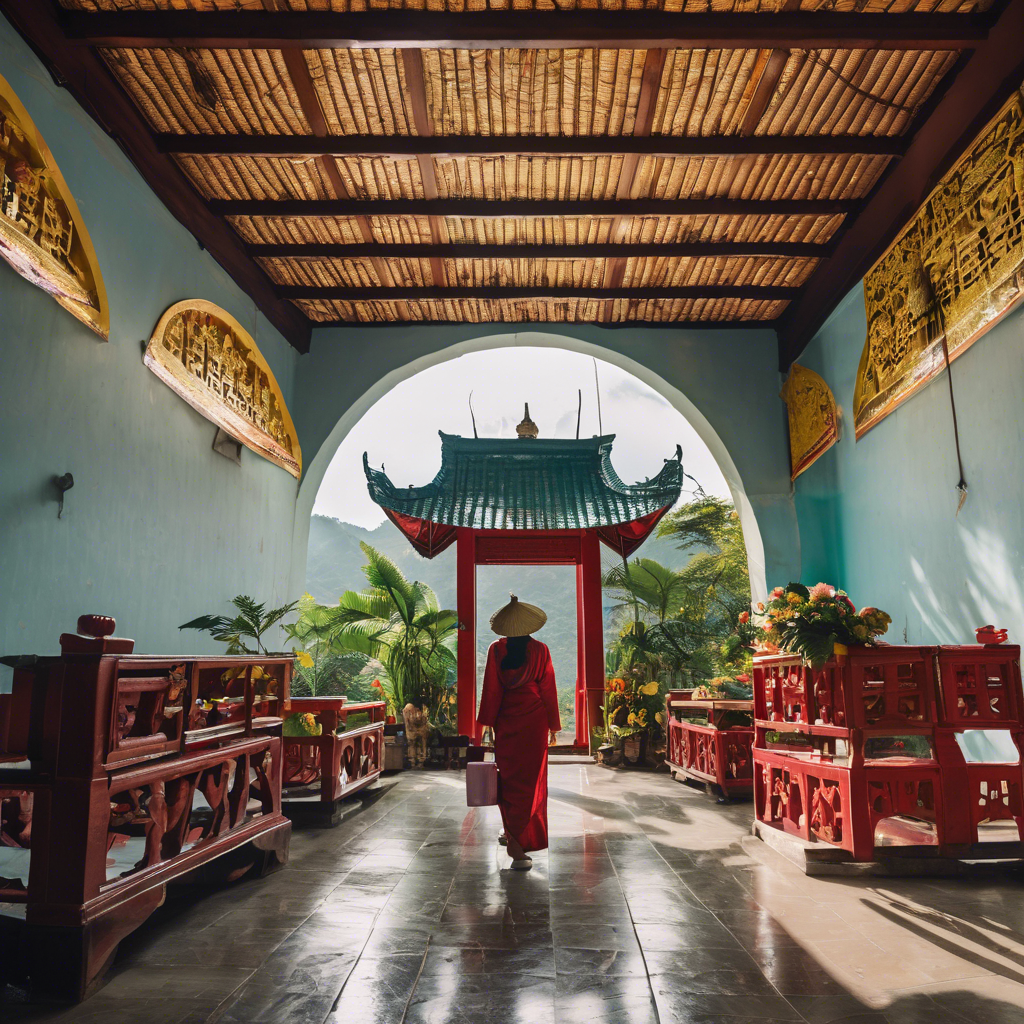Health and Safety: Travel Insurance and Medical Facilities in Vietnam
G’day fellow Aussies! After calling Vietnam home for nearly two decades, Tracy and I have learned a thing or two about staying healthy and safe in this beautiful country. When we first arrived from Down Under, navigating the local healthcare system felt as foreign as driving on the right side of the road. But don’t worry, mates – I’m here to share the real deal about travel insurance and medical facilities in Vietnam, so you can enjoy your holiday with peace of mind.
[IMAGE:vietnamese-hospital]
Why Travel Insurance Isn’t Optional – It’s Essential
Let me tell you a story that’ll make your hair stand on end. A few years back, an Aussie mate of ours decided to save a few hundred dollars by skipping travel insurance. Three days into his trip, he took a nasty spill while exploring the slippery caves in Phong Nha. The result? A broken leg, a $5,000 medical bill, and an emergency flight home that cost his family over $20,000. Crikey!
Vietnam might offer incredible value in many areas, but when it comes to medical emergencies, the costs can spiral quickly, especially for foreigners. Here’s what you need to know about travel insurance:
- Look for policies with at least $500,000 in emergency medical coverage
- Ensure your policy covers medical evacuation (could cost $100,000+ otherwise)
- Check that your adventurous activities are covered (motorbike riding, trekking, etc.)
- Consider policies that offer direct billing to hospitals
- Keep digital and physical copies of your insurance details
Tracy and I always recommend comparing policies from well-regarded Australian insurers like Cover-More, NIB, and Southern Cross Travel Insurance. Just remember to declare any pre-existing conditions – trying to save a few dollars could end up costing you your claim when you need it most.
Vietnam’s Medical Facilities: A Tale of Two Systems
[IMAGE:international-hospital]
After living here for nearly 20 years, I’ve had my fair share of hospital visits (nothing serious, just the occasional check-up and that time I ate a dodgy bánh mì). What I’ve learned is that Vietnam essentially has two parallel healthcare systems – public and private – with dramatically different standards.
Public hospitals are where most Vietnamese receive care. They offer incredibly affordable treatment but can be overwhelmingly crowded, with limited English spoken and facilities that might make you think twice. I once accompanied a local friend to a public hospital in Hanoi, and the waiting room resembled Flinders Street Station at peak hour – patients sharing beds and family members camping in hallways. While doctors are generally well-trained, resources are stretched thin.
For most Aussie travellers, international hospitals and clinics are your best bet. Cities like Ho Chi Minh City, Hanoi, Da Nang, and even Nha Trang now boast world-class facilities catering to expats and tourists. These include:
- Family Medical Practice (multiple locations)
- Vinmec International Hospitals (nationwide network)
- Victoria Healthcare (Ho Chi Minh City)
- International SOS (Hanoi and Ho Chi Minh City)
These facilities offer English-speaking staff, international standards, and modern equipment – but at prices that’ll make your eyes water if you’re uninsured. A simple consultation might set you back $80-150, while more complex treatments can quickly run into thousands.
Staying Healthy: Prevention is Better Than Cure
[IMAGE:pharmacy-vietnam]
Tracy and I have found that the best health strategy in Vietnam is avoiding problems in the first place. Here’s our tried-and-tested advice:
Before you leave Australia:
- Visit your GP for relevant vaccinations (Hepatitis A and B, typhoid, and tetanus are recommended)
- Consider malaria prevention if heading to remote areas
- Bring a basic medical kit with familiar medications
- Pack extra prescription medications with their original packaging and a doctor’s letter
While in Vietnam:
- Drink bottled or filtered water (no ice in questionable establishments)
- Exercise caution with street food (follow the crowds to popular stalls)
- Use high-SPF sunscreen and insect repellent
- Wash hands frequently or carry hand sanitizer
Remember that pharmacies are plentiful in Vietnam, and many medications that require prescriptions in Australia are available over the counter here. However, counterfeit medications can be an issue, so stick to pharmacies in reputable areas or those attached to international clinics.
When Things Go Wrong: Navigating Emergency Care
[IMAGE:ambulance-vietnam]
If you’re facing a medical emergency in Vietnam, it’s important to know that the ambulance system isn’t as reliable as back home. In major cities, international hospitals often operate their own ambulance services, but these are limited.
In emergencies, here’s what Tracy and I recommend:
- Call your travel insurance’s 24-hour assistance line immediately
- For serious emergencies in major cities, head directly to an international hospital
- Save emergency numbers in your phone (your insurance provider, nearest embassy, international hospital)
- If someone in your group speaks Vietnamese, use them to communicate with local providers
One option that’s saved us headaches is registering with Smart Traveller before your trip. The Australian government can provide emergency assistance, though they won’t cover medical costs or evacuation expenses.
The Bottom Line: Peace of Mind Doesn’t Come Cheap
After nearly two decades in Vietnam, I can tell you that the peace of mind from proper insurance and knowing where to seek quality care is worth every dollar. Vietnam’s healthcare system has improved dramatically since Tracy and I first arrived, but it still requires navigation.
Budget an extra $100-200 for comprehensive travel insurance, research medical facilities near your destinations before arrival, and carry both physical and digital copies of important medical information. Your future self will thank you – and you can focus on enjoying Vietnam’s incredible food, culture, and landscapes rather than worrying about what-ifs.
As we say to all our visiting friends: “She’ll be right” is a great Aussie attitude, but “She’ll be right because I’m prepared” is even better when traveling in Vietnam.
Until next time, stay safe and healthy on your Vietnamese adventure!
– Aussie Mates
